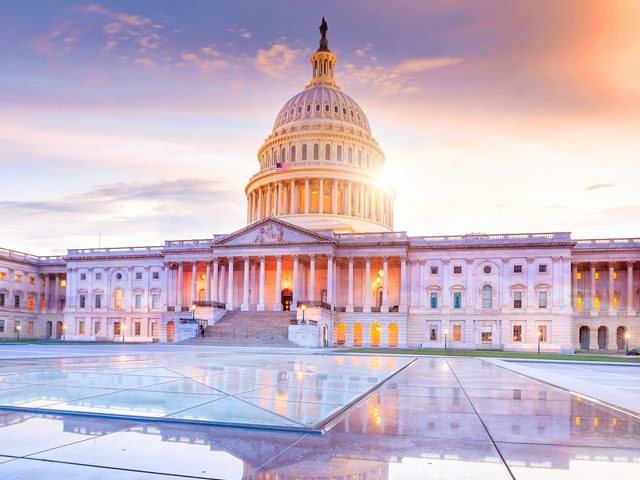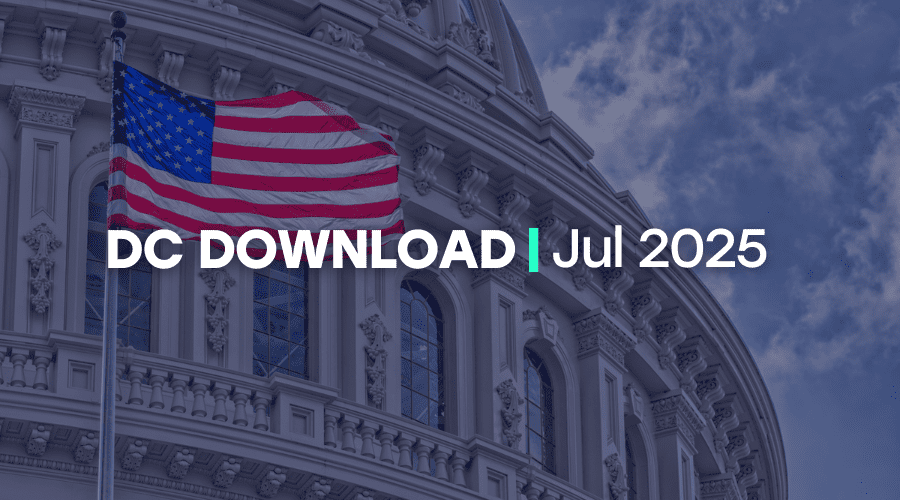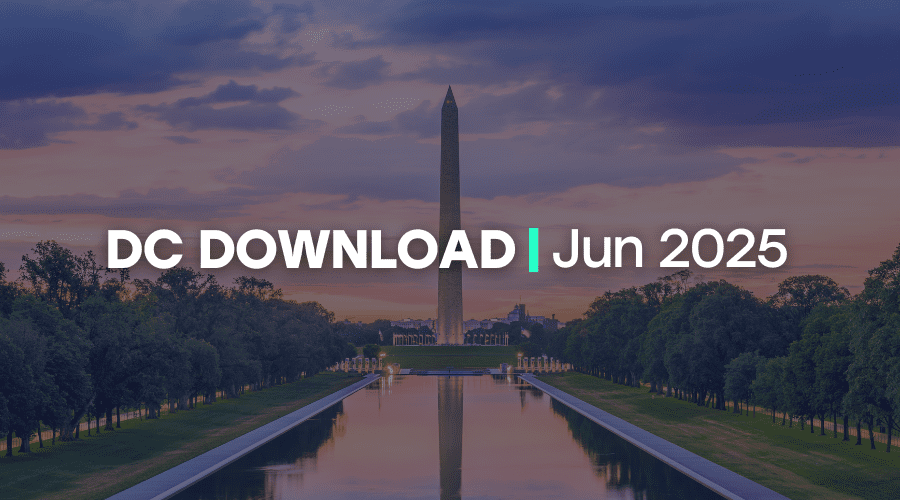Independent Sector is in conversations with the Biden-Harris Transition Team on behalf of the nonprofit and philanthropic community about sector needs. In discussions, the Biden-Harris team asked Independent Sector for information about the challenges nonprofits continue to face and specific ways federal policymakers can help the sector serve hundreds of millions of people in communities nationwide during this challenging time.
To ensure the best possible response, Independent Sector surveyed nonprofits about how policymakers can best help them in the next six months. Over 900 organizations completed the survey, providing confidential quantitative and qualitative feedback. We are awed by such an overwhelming response from organizations across the country. Already, insights from the survey are informing important conversations with the transition team and feeding into the work of national nonprofit advocacy coalitions.
Highlights of Findings
An initial analysis of survey responses reveals three main take-aways:
- Nonprofits are most concerned about operating while protecting the health and safety of staff members and community members. Sixty-five percent of respondents report they are concerned about how to safely continue operations amid the ongoing health crisis.
- Policymakers can help nonprofits by providing more resources for nonprofits to keep doors open, maintain staff members, and meet growing community need. Sixty-seven percent of respondents said incentivizing more charitable giving is a critical way for federal policymakers to help nonprofits.
- Subsectors and marginalized communities have unique needs that policymakers also need to address, particularly advancing policies that promote equity and fight racism.
Concerns About Health and Safety
Top Concerns Facing Nonprofits in 2021
- 65% Safe Operations
- 57% Growing Demand for Services
- 57% Funding to Pay Staff
- 53% Systemic Inequality
- 50% Funding to Keep Doors Open
- 17% Other
Sixty-five percent of respondents report the safe continuation or resuming operations amid the ongoing health pandemic as a top concern. Within this category, the largest number of respondents expressed significant interest in federal government support for the timely rollout of the COVID-19 vaccine and increasing the availability of Personal Protection Equipment (PPE) to communities they serve. Many organizations expressed concern for the mental health and well-being of staff members, which they linked directly to their capacity to continue operations. A few responses extended the scope of concern to include protecting staff and community members from violence. Finally, some respondents said their business model cannot accommodate social distancing, so they are concerned about reaching a threshold of community health safety that will enable them to reopen and resume operations.
Concerns About Resources
Areas the Federal Government Can Help in the Next Six Months
- 67% Incentivize Giving
- 61% More Direct Relief to Individuals
- 57% Streamline Government Grants & Contracts
- 54% New Forgivable Loans
- 43% Expand Broadband Access
- 31% Cover 100% of Unemployment Insurance
- 28% More Payroll Tax Relief
Just over half of nonprofits responded that they need funding to maintain payroll and keep their doors open, but a lack of money and human resources proved to be a theme underlying the comments. It is possible the overwhelming need for resources, whether to make up for budget shortfalls or to expand operations to meet growing demand, is why three of the top four responses were about how government can focus on helping nonprofits access resources. Incentivizing charitable giving, often a critical source of flexible funds for nonprofits, ranks the highest among policies federal lawmakers can advance to help nonprofits.
Concerns of Subsectors and Marginalized Communities
Topline findings highlight concerns that span the nonprofit sector, but aggregated findings also can disguise the acute challenges of some communities. Beneath the surface of the “most popular” responses, respondents identified specific types of nonprofits and communities that require additional support. Specifically, a large proportion of respondents said policymakers need to prioritize tackling racial and economic inequality in any future COVID-19 related policies. Many respondents added that nonprofits and issues unrelated to the COVID-19 recovery still need support and attention in the next six months.
Nonprofit Leaders: In Their Own Words
Because stories and anecdotes from nonprofit members are important to the national discussion, the survey asked individuals whether they were willing to share a quote about their work and be identified. Independent Sector plans to use these quotes in the coming weeks to better tell the story of the sector. In the meantime, here is a sample of quotes that illustrate a more complete picture of respondents’ greatest concerns for the first half of 2021.
Quotes on Nonprofit Concerns in 2021
Health and Safety
“As nonprofit frontline health care providers who serve marginalized uninsured and underinsured people, our concern is the lack of a COVID vaccination response and testing effort from our government that [is] equitable as well as timely. We must include frontline workers such as America’s Free and Charitable Clinics in the conversations about getting COVID under control.” — Nicole Lamoureux, National Association of Free and Charitable Clinics
“Protecting our staff from COVID is our biggest concern. As a small nonprofit, we have spent over $1,000 in 2020 purchasing PPE [Personal Protection Equipment] for our staff. Our program serves the disabled, uninsured, underinsured, elderly, children, Veterans – literally anyone in need – by providing FREE home medical equipment (hospital beds, wheelchairs, walkers, etc.). By definition, our clients are already a high-risk population. PPE should be FREE to nonprofits and get the damn vaccine out FASTER!” — St. Louis Health Equipment Lending Program
Funding and Demand for Services
“The dramatic demand for the basic needs of daily living (food, shelter, PPE) continues to grow, not diminish. People need cash to access those essential things most of us take for granted. A new federal relief package is desperately needed as quickly as possible.” — Marcia Egbert, Greater Cleveland COVID Rapid Response Fund and Program Director, The George Gund Foundation
“YWCA’s greatest need is for the financial resources to keep the doors open so that we can continue to meet the escalating demand for emergency shelter, child care, safety from domestic violence, trauma response, job training, and other essential services that our communities rely on us to provide.” — Alejandra Y. Castillo, CEO, YWCA USA
“Increased funding for nonprofits providing job training and workforce development will be critical to our nation’s recovery. America’s workers need secure jobs that lead to economic opportunity and prosperity. Charitable nonprofits not only prepare workers for those jobs by building their skills, but by providing the additional supports they need (food, transportation, childcare, etc.). Many of those nonprofits did not receive adequate support in previous COVID-19 relief packages, yet are in dire need of funding if they are going to successfully meet the increased needs of their communities.” — Steven C. Preston, President and CEO Goodwill Industries International, Inc.
Racism and Equity
“The events of 2020 have highlighted the deep-seated inequities that exist in all our systems in this country, especially for BIPOC communities – education, income, law enforcement, health, infrastructure, labor, immigration, and democratic processes. If we are to move forward as a country, these all need to be addressed with the greatest urgency possible.” — Angela Reyes, Executive Director and Founder, Detroit Hispanic Development Corporation
“Native American communities have historically been disenfranchised, marginalized, and excluded from the federal programs that are legally required to ensure education, health, and well-being. Please be Native Aware, and do not leave our communities behind.” — Joshua Arce, JD (PBPN), President and CEO, Partnership With Native Americans (PWNA)
“Focusing on policies to root out structural racism and begin [the] process of building a more equitable opportunity for our poor and disadvantaged community. That includes providing broadband, connections, and devices to close the digital divide.” — Arnold F. Fege, President, Public Advocacy for Kids
“[Our nonprofit] serves a mostly rural and conservative area, providing LGBTQ+ people and their families with support and advocacy. We are the only organization doing this work in our area and we fear for our future to continue this work due to a confluence of issues: increased hatred, under-resourced rural areas, Michigan’s unamended civil rights and hate crimes acts, and a frightening lack of understanding on equitable distribution of support for organizations serving marginalized populations. We need support now!” — Anonymous respondent
Nonprofit Operations and Infrastructure
“Nonprofit leaders and funders are focused on short-term responses to the current emergency. They are doing precious little to ensure the nonprofits are prepared to deal with future crises, and they are not investing in organizational resilience.” — Dennis R. Young, Chair, Research Advisory Network, National Center on Nonprofit Enterprise
“COVID-19 has had a devastating impact on communities across the country. To respond and recover, they will need tens of millions of volunteers and a cross-sector digital infrastructure to more effectively mobilize and connect them at scale.” — Greg Baldwin, CEO, VolunteerMatch
Leadership
“My biggest concern is unifying the USA around our common humanity. Without it, half of Americans will feel disenfranchised.” — Angela Williamson, General Manager, Northern Kentucky Symphony
“Convincing elected officials that solving systemic problems with short-term thinking and postage stamp-size investments is not the way to [ensure] long-term systemic solutions.” — Frank Knott, Founder and Chairman, Innovation Works, Inc.
Mission-Specific Issues
“Receiving permission to rehearse/perform as an ensemble in public. Without an audience, we die.” — Jirina Ribbens, Executive Director, Ice Theatre of New York, Inc.
“I am very concerned that the need to make rapid changes in order to confront global climate change may take a back seat in 2021 given the seeming imperative to prioritize basic human needs. However, the urgency of the climate crisis demands that we all think creatively about how to increase the revenue available to address both of these problems simultaneously.” — Brenda L. Smith, Executive Director, Nine Mile Run Watershed Association



